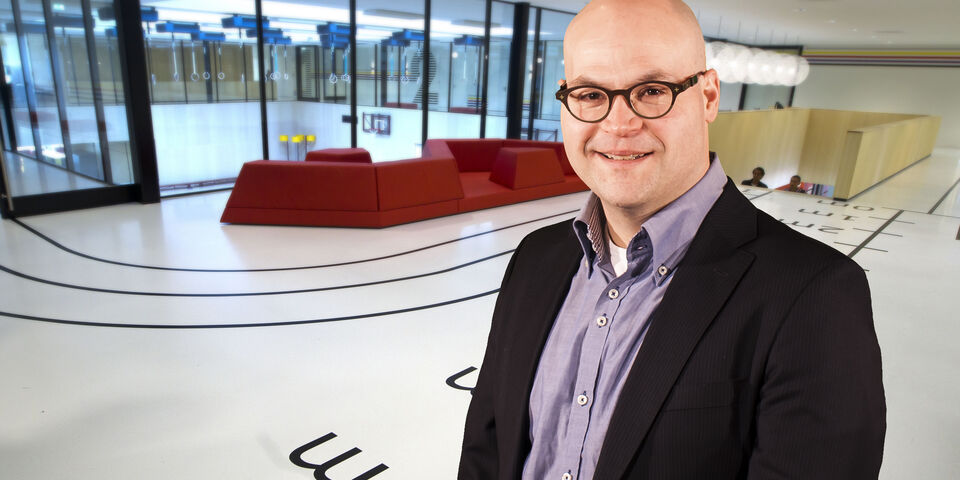TU/e assigns sports professor
TU/e has appointed Dr. Steven Vos part-time professor in the new ‘Design & Analysis of Intelligent Systems for Leisure Time Sports & Vitality’ chair whose focus is to promote public health by offering predominantly less experienced sportsman new, smart resources to stay healthy and exercise in a healthy way. One of the keys to this is our ability to derive knowledge from the ever growing stream of data that are becoming available via smartphones and apps, for example, about our sport and exercise behavior.
The new professor, Steven Vos (1976), has been a lecturer at the ‘Move to Be’ lectorate at Fontys Sports College in Eindhoven since 2012. In addition, he is a researcher in the Sport & Movement policy research group at the KU Leuven. He is a social psychologist who gained his doctorate in movement sciences from Leuven before working as senior researcher and innovation manager at various research institutes. Steven is (co-)author of many books and policy reports, and has published in a range of international scientific journals.
Public health
The lack of physical exercise is one of the world’s major public health challenges. It is well known that physical exercise can prevent a lot of health problems but there is still little we know about the sporting and exercise behavior of relatively inexperienced sportsmen because sports research tends to target elite sportsmen. The new TU/e chair, in the Industrial Design department, aims to close this gap by enabling people to participate in sport and exercise sustainably and responsibly throughout their lives, an aim that is shared by the Move to Be lectorate at the Fontys Sports College.
Running, swimming, cycling
“There are more and more inexperienced and fragile people taking up sport,” Aarnout Brombacher, dean of the TU/e Industrial Design department, says. “It’s a good thing that they are doing sport but often they have little knowledge about their body and sports technique, which can lead to injury or dropout.” At the same time, the possibilities to measure the body are increasing, such as the inexpensive heart rate meters and movement sensors in smartphones. The new professor will work with other researchers on analyzing such data in order to acquire the knowledge that can help those new to sport to improve their performance. The focus lies initially on sports that people tend to do on an individual basis outside of sports clubs, like running, swimming and cycling.
Analysis
The research work intends ultimately to produce the design of effective, practical and affordable sports gadgets, devices or services based on solid knowledge of behavior regarding sport and movement. To achieve this, professor Vos and his co-researchers will be working on methods to acquire and analyze data on sports behavior, such as heart rate, breathing and location (GPS) as well as the fully automatic image analysis of aspects like posture, technique, tempo, equipment, etc.
Ecosystem around Eindhoven
The new chair is the link that connects internal – in terms of sports research within the different TU/e departments – and external, especially the collaboration with Fontys and also with the KU Leuven and the University of Utrecht and UMCU, along with the companies involved. In addition, the new professor will have a key role in strengthening the ecosystem in and around Eindhoven in the field of sport and technology.
The TU/e department of Industrial Design and Fontys Sports College want to use this chair to help boost the collaboration that is already emphatically expressed through the research into running in relation to the Eindhoven Marathon and the PhD study of Fontys lecturer Mark Janssen. Collaboration helps cluster the strengths of the more fundamental knowledge of TU/e and the applied expertise of Fontys in the sports domain.
Researchers attracted Sport and vitality is a relatively new subtheme of the TU/e Health focal area. Since its start some two years ago, ten researchers have been appointed and that number is set to grow in the coming years. One of the research programs the researchers are working on is ‘Mine your own body’, a collaboration between TU/e, Fontys, Philips and others. Another important collaboration is that with the Data Science Center of TU/e to help new insights be gained from the large quantities of data.
Source: Press team TU/e


Discussion